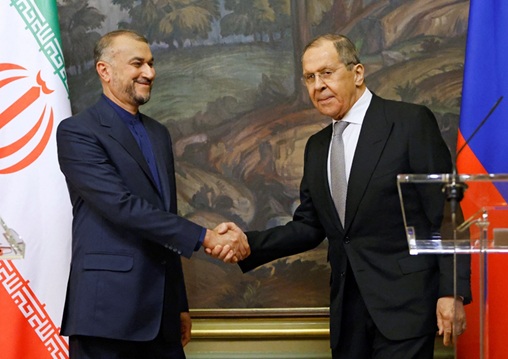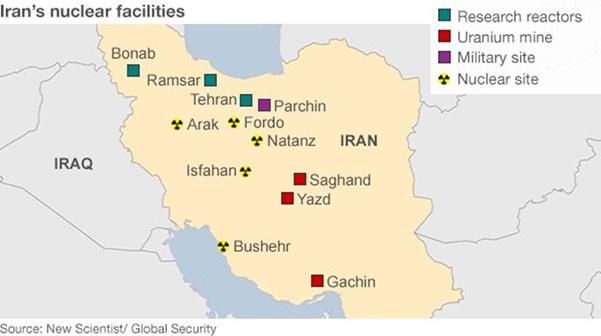| (Prelims: Contemporary International Developments) |
Context
Recently, Iran and Russia signed a major $25 billion nuclear deal. Under this agreement, Russia will build four new nuclear power plants in Iran. This move comes at a time when Iran is facing sanctions from Western countries and energy security is a major priority for it.

What is the Iran-Russia Nuclear Deal ?
- The agreement is between Russia's Rosatom and Iran.
- It envisages the construction of four Generation-III nuclear power plants on a 500-hectare site in the Sirik region of Hormozgan province in southeastern Iran.
- These plants will generate 5,000 MW of electricity.
- The agreement also includes plans for the construction of eight additional nuclear power plants in the future.
- Iran aims to achieve a nuclear power capacity of 20 GW by 2040.
Key Points of the Agreement
- Value: $25 billion
- Number of plants: 4 new nuclear power plants
- Capacity: Total 5,000 MW of electricity generation
- Location: Sirik region, Hormozgan province, Iran
- Future plans: Construction of 8 more plants, long-term cooperation
Impact of the Agreement
- Energy Security: Iran has been grappling with power shortages for a long time. This deal will significantly alleviate the power crisis.
- Strategic Partnership: The relationship between Russia and Iran will deepen, especially in the energy sector.
- Relief Amid Sanctions: Despite Western sanctions, this deal sends a message of global support to Iran.
- Geopolitical Implications: Russia and China support Iran, while the US, UK, France, and Germany oppose it. This will affect the global power balance.
- Nuclear Power Expansion: This deal is a major step towards Iran's goal of achieving 20 GW of nuclear power capacity by 2040.

Iran's Nuclear Facilities and Concerns
- Currently, Iran has only one nuclear power plant, Bushehr, which was built by Russia and has a capacity of 1 gigawatt.
- The construction of new plants will significantly increase Iran's nuclear power generation capacity.
- The UN Security Council recently rejected a proposal to lift permanent sanctions against Iran.
- Western countries accuse Iran of violating the 2015 nuclear deal and of seeking to develop nuclear weapons.
- Iran has consistently denied these allegations, stating that its nuclear program is solely for peaceful energy purposes.
Conclusion
The Iran-Russia nuclear agreement is not limited to the energy sector; it also reflects the strategic and geopolitical partnership between the two countries. This move will have a significant impact on Iran's energy security, Russia's global influence, and the ongoing tensions with Western countries.

 Contact Us
Contact Us  New Batch : 9555124124/ 7428085757
New Batch : 9555124124/ 7428085757  Tech Support : 9555124124/ 7428085757
Tech Support : 9555124124/ 7428085757









